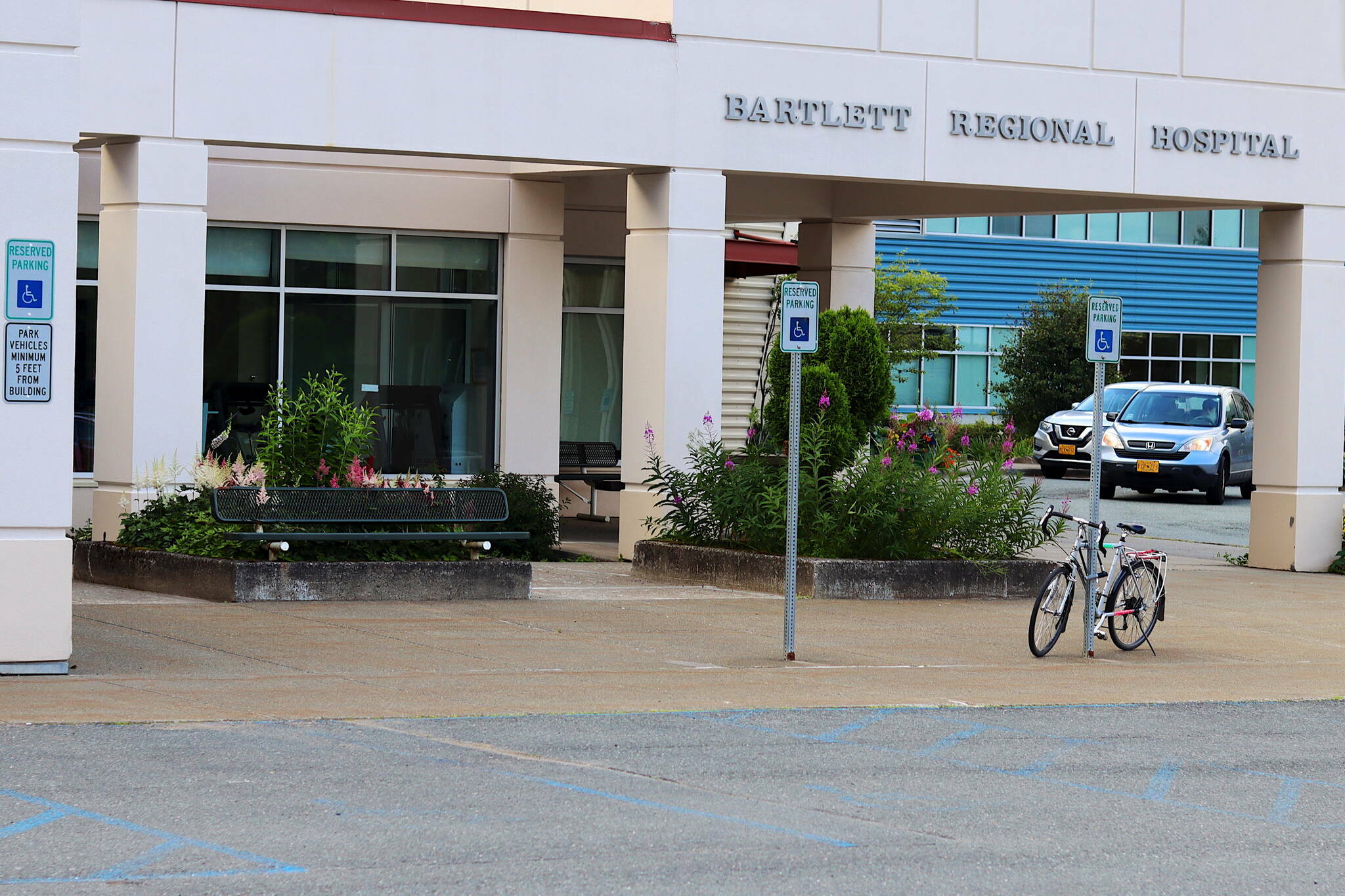About 100,000 Alaskans could lose health insurance if a cut to Medicaid supported by President Donald Trump and Republicans who control the U.S. House is enacted, according to Bartlett Regional Hospital CEO Joe Wanner and other state health officials.
The Trump administration and House Republicans are backing a spending plan that cuts Medicaid by up to $880 billion during the next decade. Wanner, during a meeting of Bartlett’s board of directors Wednesday, said the cut would affect 72,000 Alaskans added since Medicaid coverage expanded under the Affordable Care Act and another 23,000 Alaskans who get subsidies for insurance they purchase.
“So there’s about 100,000 people who could lose insurance through some of these changes,” he said.
That total is echoed in a letter sent to Alaska’s congressional delegation last Friday by the Alaska Hospital and Healthcare Association (AHHA). The letter states the $880 billion cut purportedly could be through both Medicaid (a state/federal low-income program) and Medicare (a federal program for people 65 and older), but Trump and congressional Republicans have indicated Medicare should be spared from the widespread federal cuts now occurring.
“That figure is not meant to shock,” Jared Kosin, AHHA’s president and CEO, said in an interview Friday about the possibility of 100,000 Alaskans losing healthcare coverage. “I think it is a possibility, but it’s a possibility in a time where there’s a lot of rapid change and so I think we need to take it seriously.”
The Trump-endorsed spending package by House Republicans seeks to cut $2 trillion over 10 years to help pay for $4.5 trillion in tax cuts, according to The New York Times. The Republican-led Senate is not proposing the cut in its budget.
“Under the outline, Medicaid cuts would have to make up nearly half of the required $2 trillion in spending cuts, if Medicare is left untouched as Republicans have said it will be,” the newspaper reported.
About 250,000 Alaskans are covered under Medicaid, including 72,000 who enrolled under the expansion that covers nearly all adults with incomes up to 138% of the federal poverty level, according to AHHA. House Reublicans are seeking to repeal that provision that has been implemented by 40 states including Alaska.
The fiscal plan also ends enhanced tax credits for insurance plans purchased through the federal marketplace by 23,000 Alaskans, which are set to expire this year unless extended. Kosin said that wouldn’t take away those people’s insurance outright, but “the premiums are going to go up double, if not triple, from what they’re currently paying and that’s just not even possible to afford that.”
A resolution asking the federal government to extend the tax credits beyond the current year has been introduced in the Alaska Legislature by Rep. Genevieve Mina, an Anchorage Democrat, who said premiums for Alaska health insurance plans on the federal marketplace have increased by more than 50% during the past three years.
In response to voiced concerns, U.S. Rep. Nick Begich III, an Alaska Reublican who is part of the caucus proposing the cuts, told a joint session of the Legislature on Wednesday that Medicaid spending has grown by 51% nationally since 2019 because it “dramatically expanded in its scope and scale under the Biden administration.” Begich said a proposal being discussed is “a strong likelihood of work requirements for Medicaid” where able-bodied people would work or volunteer 80 hours a month.
“Taxpayers are working and paying the taxes; they expect people who receive welfare benefits who are able to work to do so,” he said. “And when we do that, when we reinstitute those kinds of rules, it actually makes these programs more solvent for people who need them most (such as) the blind, the disabled and the elderly.”
Kosin said while there is a logical argument to the concept of a work requirement for Medicaid, practically speaking it isn’t a workable policy.
“I think the real, practical effect is it creates a bigger barrier for people to maintain their care for whatever reasons, and this is where it kind of gets into socio-economic factors,” he said. “But the bottom line is if you cannot meet that work requirement then you lose your coverage. If you lose your coverage, what’s the practical result? You’re funneling people to the emergency rooms. You’re creating millions in uncompensated healthcare that gets absorbed by the rest of the system and drives up the cost of care for everybody. So logically I can see how it sounds appealing, but practically I think the results would not achieve what people think it would.”
Wanner said the potential Medicaid cut is a concern to keep an eye on as Bartett works to stabilize its operatons after a year that saw significant cuts in programs and staff to remedy a budget crisis that threatened to leave the hospital broke. It was losing about $1 million a month between mid-2020 and early 2024, but has operated profitably since and on Wednesday voted to repay a $2 million loan to the City and Borough of Juneau over the next three years.
• Contact Mark Sabbatini at mark.sabbatini@juneauempire.com or (907) 957-2306.

